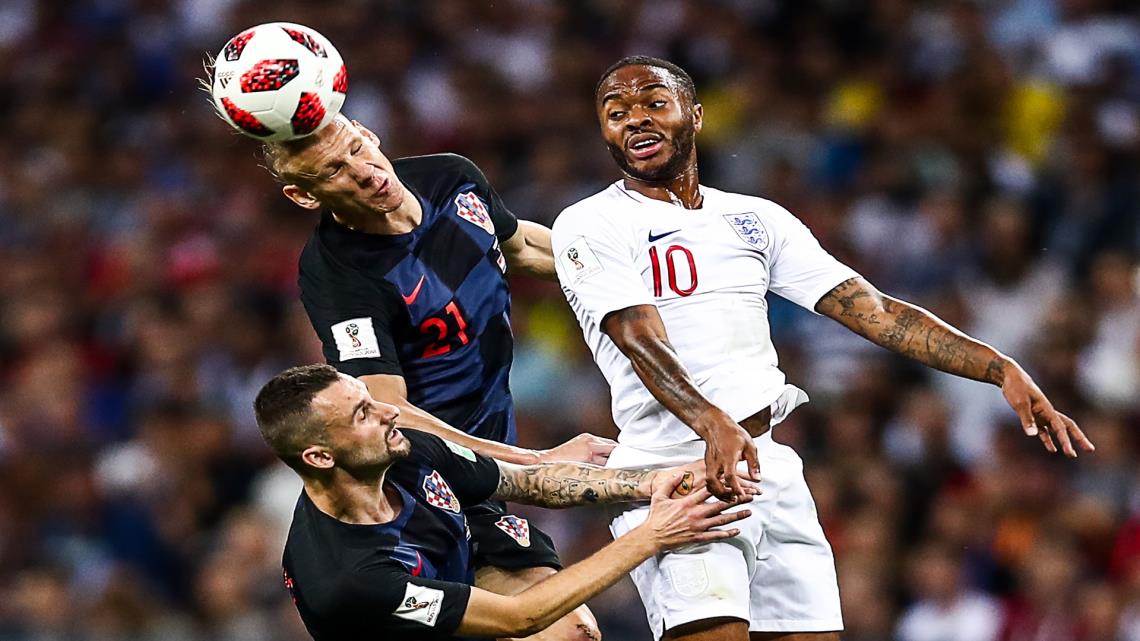Moscow - By Barry Whelan, - England are beginning to reap the rewards of a consistent coaching approach running from the country's youth teams to senior level.
The Three Lions success in reaching the World Cup semi-finals in Russia follows a remarkable year for the country's teams at junior level which has included World Cup Under-20 and Under-17 wins and an Under-19 European title.
Manager Gareth Southgate, who was the head of elite development and Under-21 boss, has been at the centre of a quiet revolution launched in 2014 as "England DNA."
The cornerstones of the programme include providing an identity to the national teams and fostering a playing style and philosophy common to all.
Football Association head of player and coach development Matt Crocker said that condensing England DNA down to six principles had made it easier to get the philosophy across to the players.
"There is a simple consistency across our teams and the players have more confidence when they step up to the seniors. I really think we have more connected squads than ever before," he said.
Southgate has embodied the spirit of change at the World Cup in both selections and playing style.
"It’s clear the progress we’ve made in terms of performances and togetherness," he said following the disappointment of their 2-1 semi-final defeat to Croatia.
"An inexperienced team has to go through things to make them better. To become a winning team there are hurdles you have to overcame – and we’ve surpassed many of them."
England want to be "a team who hit quarter-finals, semi-finals and finals," he said. "We’ve proved to ourselves and our country that’s possible. There’ll be a new benchmark and level of expectation. Many of our players have come of age on the international stage."
England had the joint second youngest squad, along with France, at the World Cup. Southgate still has 11 players from the Euro 2016 squad, but the manager has changed a great deal.
Along with the philosophy has come a new tactical set up. Tough decisions have been made on players, with the manager easing out Euro 2016 team captain Wayne Rooney and goalkeeper Joe Hart, while omitting players like defender Chris Smalling or midfielder Jack Wilshire. He had no concerns about including a previously uncapped teenager in Liverpool's 19-year-old Trent Alexander-Arnold.
"The biggest thing the gaffer (Southgate) has brought since he has come in from day one is identity, how we wanted to play as a team," Liverpool midfielder Jordan Henderson said.
"We had discussions early on when he took over as a manager and we were on the same page straight away... I think you can see that togetherness on the pitch."
Although the pool of England players is relatively small in the Premier League, Southgate is undoubtedly benefiting from having 15 members of the squad under top foreign club coaches, in Manchester City's Pep Guardiola, Tottenham's Mauricio Pochettino, Liverpool's Juergen Klopp or Manchester United's Jose Mourinho, and all playing Champions League football.
But Southgate must take credit for the role he has been playing in England's blueprint on scouting, coaching and development.
"I’ve been involved in all the plans really, right through the age groups," he said on the eve of the semi-final. "To have seen our younger teams have the success they have has been hugely rewarding."
The experience of Euro 2016, when the team was eliminated by Iceland, has also been an important one, as will the defeat to Croatia.
"There were a lot of young players involved in the team two years ago who suffered a huge disappointment, and we could have ignored that and tried to be positive and look to the future," Southgate said.
"But we felt it was important to learn from it, unpick it a bit, and find out exactly why. Not just that performance, we've had 10 years since we won a knock-out game, so there were a lot of areas where we thought we could improve."
Additional support staff to give the players additional medical, psychological and coaching expertise is all part of the success story.
The World Cup experience in Russia can only have added to England's new-found confidence. And with the success also of the youth teams, the future looks bright.
"There are some fantastic players coming through. It's an an exciting time for English football," Henderson said.
The Three Lions success in reaching the World Cup semi-finals in Russia follows a remarkable year for the country's teams at junior level which has included World Cup Under-20 and Under-17 wins and an Under-19 European title.
Manager Gareth Southgate, who was the head of elite development and Under-21 boss, has been at the centre of a quiet revolution launched in 2014 as "England DNA."
The cornerstones of the programme include providing an identity to the national teams and fostering a playing style and philosophy common to all.
Football Association head of player and coach development Matt Crocker said that condensing England DNA down to six principles had made it easier to get the philosophy across to the players.
"There is a simple consistency across our teams and the players have more confidence when they step up to the seniors. I really think we have more connected squads than ever before," he said.
Southgate has embodied the spirit of change at the World Cup in both selections and playing style.
"It’s clear the progress we’ve made in terms of performances and togetherness," he said following the disappointment of their 2-1 semi-final defeat to Croatia.
"An inexperienced team has to go through things to make them better. To become a winning team there are hurdles you have to overcame – and we’ve surpassed many of them."
England want to be "a team who hit quarter-finals, semi-finals and finals," he said. "We’ve proved to ourselves and our country that’s possible. There’ll be a new benchmark and level of expectation. Many of our players have come of age on the international stage."
England had the joint second youngest squad, along with France, at the World Cup. Southgate still has 11 players from the Euro 2016 squad, but the manager has changed a great deal.
Along with the philosophy has come a new tactical set up. Tough decisions have been made on players, with the manager easing out Euro 2016 team captain Wayne Rooney and goalkeeper Joe Hart, while omitting players like defender Chris Smalling or midfielder Jack Wilshire. He had no concerns about including a previously uncapped teenager in Liverpool's 19-year-old Trent Alexander-Arnold.
"The biggest thing the gaffer (Southgate) has brought since he has come in from day one is identity, how we wanted to play as a team," Liverpool midfielder Jordan Henderson said.
"We had discussions early on when he took over as a manager and we were on the same page straight away... I think you can see that togetherness on the pitch."
Although the pool of England players is relatively small in the Premier League, Southgate is undoubtedly benefiting from having 15 members of the squad under top foreign club coaches, in Manchester City's Pep Guardiola, Tottenham's Mauricio Pochettino, Liverpool's Juergen Klopp or Manchester United's Jose Mourinho, and all playing Champions League football.
But Southgate must take credit for the role he has been playing in England's blueprint on scouting, coaching and development.
"I’ve been involved in all the plans really, right through the age groups," he said on the eve of the semi-final. "To have seen our younger teams have the success they have has been hugely rewarding."
The experience of Euro 2016, when the team was eliminated by Iceland, has also been an important one, as will the defeat to Croatia.
"There were a lot of young players involved in the team two years ago who suffered a huge disappointment, and we could have ignored that and tried to be positive and look to the future," Southgate said.
"But we felt it was important to learn from it, unpick it a bit, and find out exactly why. Not just that performance, we've had 10 years since we won a knock-out game, so there were a lot of areas where we thought we could improve."
Additional support staff to give the players additional medical, psychological and coaching expertise is all part of the success story.
The World Cup experience in Russia can only have added to England's new-found confidence. And with the success also of the youth teams, the future looks bright.
"There are some fantastic players coming through. It's an an exciting time for English football," Henderson said.









 Home
Home Politics
Politics











